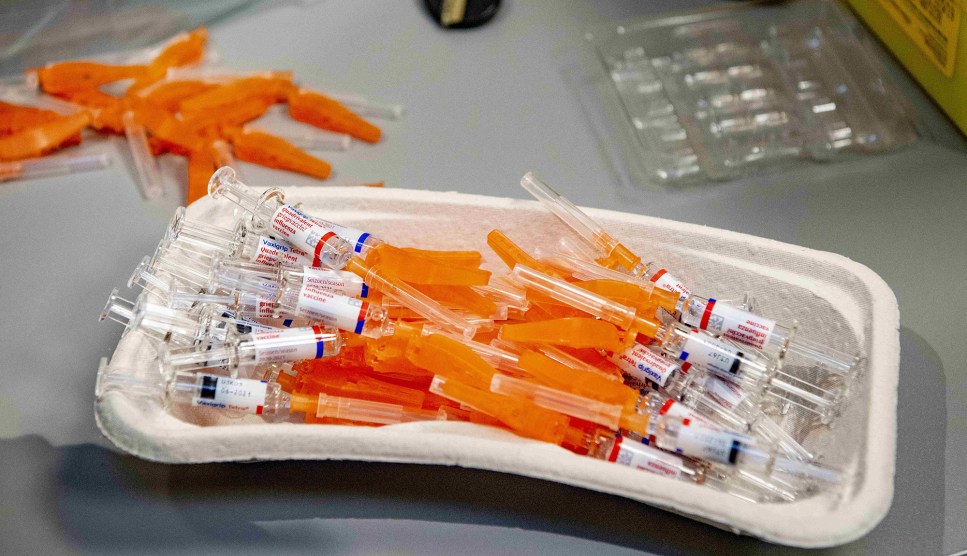
This is actually flu vaccine, but you get the idea.Ddp Images/DDP via ZUMA
How fast should we approve a new COVID-19 vaccine? Tyler Cowen argues that sooner is better if a vaccine shows even moderate promise. Even if the vaccine is imperfect, the number of lives saved by an early release is almost certain to be greater than the number of lives lost to unforeseen side effects.
I think this is true, but I’d still hesitate to release a vaccine too early. In the short term, maybe it would be a net positive. But in the long term, people will react strongly to even a modest number of deaths from the vaccine. The worst possible scenario would be one in which we finally develop a safe, effective vaccine, but large swaths of the public refuse to get it because previous trials led to enough deaths to become newsworthy.
The basic argument for approving a COVID-19 vaccine as soon as possible is sound, but success or failure will depend almost entirely on gaining public acceptance for it. Even if it means delaying approval, this really needs to be our primary concern.
In the meantime, it does look as if the schedule for a vaccine is slowing:
The ambitious drive to produce Covid-19 vaccine at warp speed seems to be running up against reality. We all probably need to reset our expectations about how quickly we’re going to be able to be vaccinated. Pauses in clinical trials to investigate potential safety issues, a slower-than-expected rate of infections among participants in at least one of the trials, and signals that an expert panel advising the Food and Drug Administration may not be comfortable recommending use of vaccines on very limited safety and efficacy data appear to be adding up to a slippage in the estimates of when vaccine will be ready to be deployed.
Asked Wednesday about when he expects the FDA will greenlight use of the first vaccines, Anthony Fauci moved the administration’s stated goalpost. “Could be January, could be later. We don’t know,” Fauci, director of the National Institute of Allergy and Infectious Diseases, said in an online interview with JAMA editor Howard Bauchner.










